Effective Treatment Options for Hirschsprung's Disease
The some missing nerve cells in the intestine of a baby-to-be-born is the main reason of Hirschsprung's disease. Sometimes it may affect the small part of his/her bowel but in case large sections of nerve cells are missing this disease may obstruct 15-20% of the functioning of his intestine even at the time of birth. This disease is normally diagnosed within 5-6 weeks after the birth of the baby but it may take longer to diagnose if disease affects a smaller portion of bowel.
Choosing the Hirschsprung's disease treatment options
Though Hirschsprung's disease can be treated through surgical process with two options but choosing from either of the hirschsprung's disease treatment options depends on certain conditions as under:
- Extent of affect of disease on the intestines
- Age, general medical history of the baby
- Capacity of the baby to handle certain medicines, procedures and therapies needed in this treatment
- Probable results of the disease in individual case
Hirschsprung's disease treatment options
There are mainly two Hirschsprung's disease treatment options, minimal invasive surgery and traditional open surgery, which can be used for treating the affected baby according to his condition.
Minimal invasive surgery: This type of surgery is used to treat infants with stable condition. Only five to six incisions are made to the patient in this process using endoscope, a tube with a camera to allow the surgeon to know what he is doing inside baby's body through a television monitor.
Severally this process is also used as pull-through process to remove the nerve cells missing and tissues that had affected the intestine and connecting the healthy section of bowel with the intestine.
In other cases this type of surgery is used as Colostomy in which surgeon connects the open side of the bowel to baby's skin to make the exclusion of body wastes possible through the hole outside of his body. In this way the patch where the surgery was done to remove the bowel will be protected until it heals. It may take 4-6 weeks to close the colostomy.
Traditional open surgery: This surgical approach is generally used only if minimal invasive surgery is not possible as large incisions are made in this process to remove blockage and bringing the bowel piece to surface of patient's skin. But the piece of bowel without nerves can be removed after recovery of the patient through minimal incision process.
Post-operative complications in Hirschsprung's disease
Most of the people normally recover from the problem of Hirschsprung's disease after surgery but their can be usual complications in some case as experienced in any other surgical process like infection, bleeding, scarring, anesthesia related problem or blockage of bowel. These complications are found in lesser amount in minimal invasive surgery but disturbance in the intestines can be noticed in pull-through surgery which may need additional surgery to rectify the intestine.
But avoidance of constipation in the pull-through surgery patients can help in avoiding most of his post-operative complications as constipation can lead to infection of intestine which can by risky for their life. So in case of dietary changes for the patient you must be careful for his constipation.
Small swollen belly, watery stool, lacks energy or running of a fever are some of the symptoms of constipation to the patient after surgery of Hirschsprung's Disease and should be taken immediately to his doctor. In severe cases of constipation in this disease some medications like laxatives, stool softeners, enema and other procedure to stretch anus muscles can be used.
Post-operative life of the patient with Hirschsprung's disease
The need of post-operative care to the patient undergone surgery to treat Hirschsprung's disease depends on the extent of intestine affected due to lack of nerve cells and the length of intestine removed. The patient may experience loose stools frequently. So you will have to be careful while cleaning the anal area as repetitive cleaning may cause rashes and irritation on his skin. You will have to be careful about his bowel movement as it may happen anytime after every feed. Difficulty in bowel movement is also experienced in some cases due to tightening of the anal opening.
Thus, even after choosing suitable Hirschsprung's disease treatment options there are several problems to be cared after surgery. So be careful.
| Written by: | Michal Vilímovský (EN) |
|---|---|
| Education: | Physician |
| Published: | June 6, 2013 at 11:12 PM |
| Next scheduled update: | June 6, 2015 at 11:12 PM |
Related articles
Get more articles like this in your inbox
Sign up for our daily mail and get the best evidence based health, nutrition and beauty articles on the web.

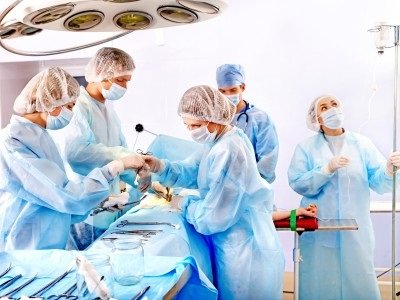
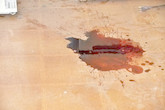
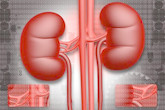

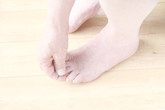
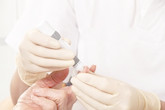
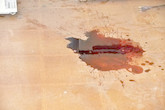
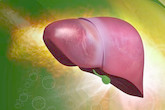
Ache in left arm that you should not ignore
Alkaline water dangers: why you should not drink it
How to Avoid Sleepiness While Studying?
23 Foods That Increase Leptin Sensitivity
Low dopamine (e.g. dopamine deficiency): causes, symptoms, diagnosis and treatment options
Swollen taste buds: the ultimate guide to causes, symptoms and treatment
Thin endometrial lining: causes, symptoms, diagnosis and treatment
Pimples inside nose: the complete guide
Holes in tonsils: definition, symptoms, treatment and prevention
How to deal with an ingrown hair cyst
Allegra vs. Zyrtec vs. Claritin
Allergy to penicillin and alternative antibiotics
How to get rid of phlegm (excessive mucus) in throat? Detailed guide to medical and home remedies, symptoms and causes
What causes stomach ache after meals?
Liver blood test results explained